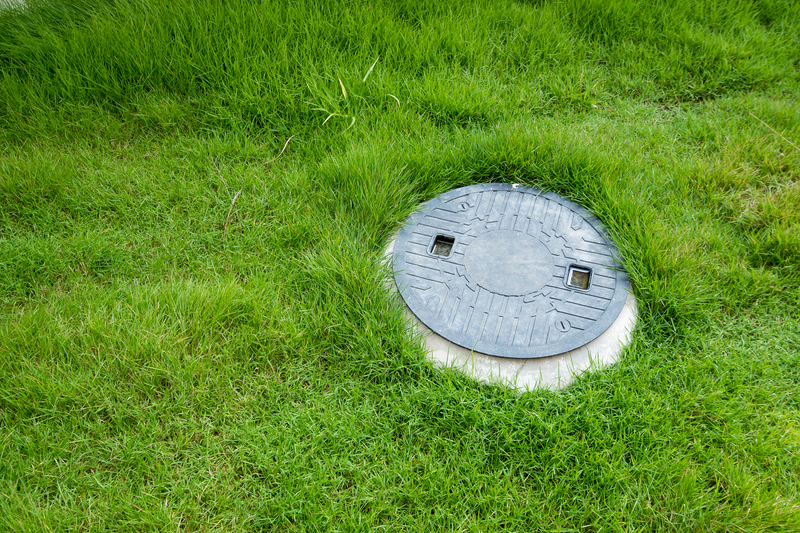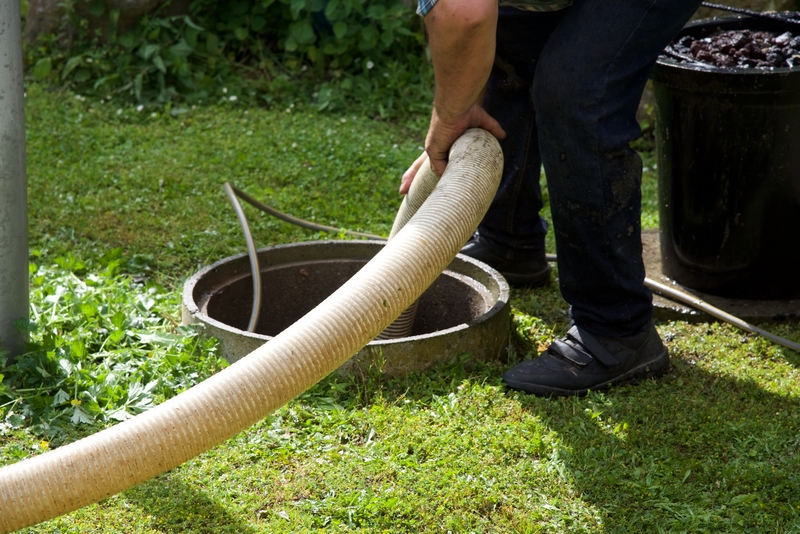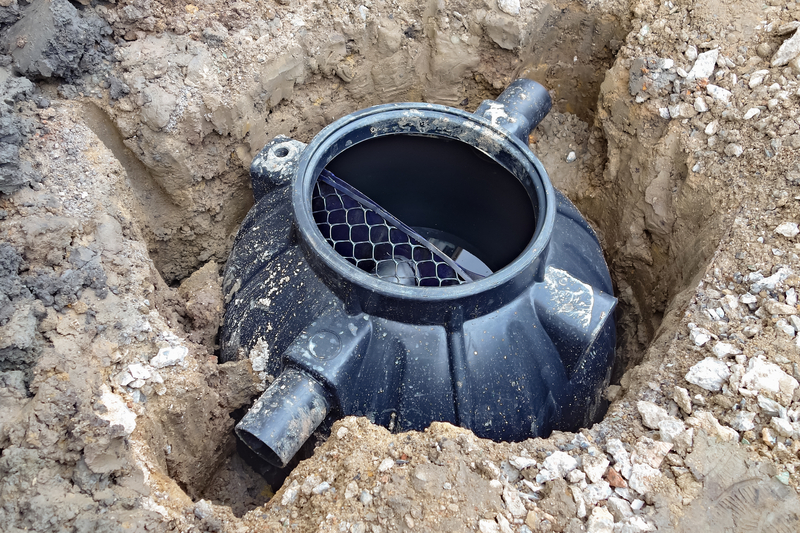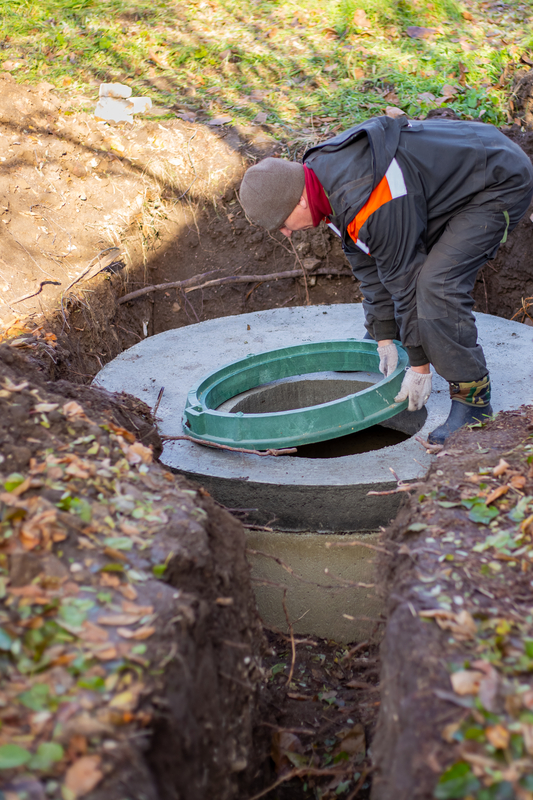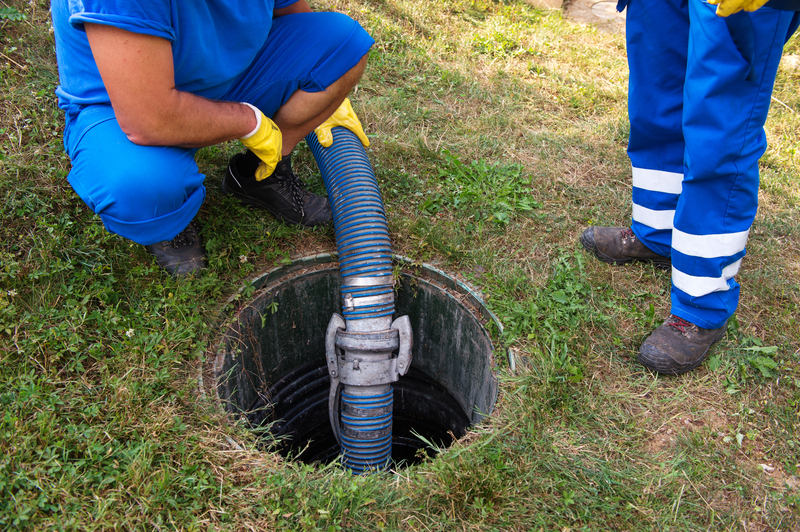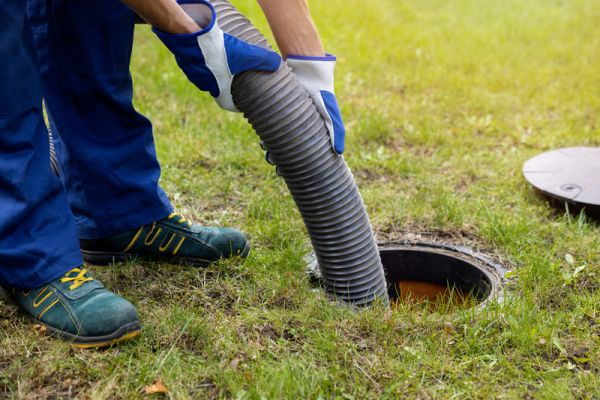In this article
How often to service a Septic Tank?
Maintaining a healthy septic tank is crucial to ensure your waste water treatment system is working well. It also aids the prevention of costly repairs and environmental hazards to you and your home. Regular care of your shallow dig septic tanks, larger septic tanks, or general sewage treatment plants ensures that your drainage system operates efficiently. This can reduce the need for extensive maintenance, keeping things running smoothly, preventing messy situations, and saving you from unexpected expenses.
So, how often do you need to service and empty your septic tank? In this article, we will look at how servicing a septic tank works, how you can get this done and how often you need to do it.
Understanding Septic Tanks
When household wastewater enters the septic tank, it undergoes a specific process. Heavy solids gracefully settle at the bottom over 24-48 hours, while helpful bacteria diligently break down waste into water.
However, the easy flow of this system can be influenced by several factors, including household size, water usage habits, soil composition, system age, and even the presence of a garbage disposal unit. These variables collectively determine how often your septic tank requires servicing, making it essential to understand and address them for a smoothly running septic system.
- How Septic Tanks Work: The operation of a septic tank consists of the following process: Household wastewater enters the tank, where heavier solids settle at the bottom within 24 to 48 hours. Concurrently, bacteria in the tank begin decomposing the waste into water through a natural decomposition process.
- Factors Affecting Service Frequency: Various elements, such as household size, water usage habits, soil composition, system age, and the presence of a garbage disposal unit, determine the frequency at which your septic tank needs servicing.
Signs Your Septic Tank System Needs Servicing
When it comes to maintaining a septic tank, being attuned to the signs that indicate your system needs attention is crucial for preventing potential issues. Foul odours, slow drains, and standing water around the tank are vital indicators that your septic tank might require servicing.
If you catch a whiff of unpleasant smells, notice sluggish drainage in sinks and toilets, or observe water pooling near the tank, it's time to consider scheduling maintenance to keep your septic system running smoothly and effectively. Let's take a closer look at these signs so you can better understand what to look out for.
Foul Odours
Foul odours emanating from your drains or around your property can be a telltale sign that your septic system needs attention. These unpleasant smells may indicate a tank problem requiring professional servicing. Addressing foul odours promptly can prevent more significant issues and ensure the smooth operation of your septic system.
Slow Drains
Slow drains in your sinks, showers, or toilets can also signal issues with your septic sewage tanks that must be addressed. If you notice water draining slowly or experiencing frequent backups, this could indicate a clog or a full septic tank that needs to be emptied. Slow drains are a common symptom of septic tank problems and should not be ignored to prevent potential system failures and costly repairs.
Standing Water
The presence of standing water around your septic tank or drainage field is another red flag that signals the need for immediate servicing. Standing water can indicate a problem with your drainage system, such as a clog, a leak, or an overflowing tank. If left unaddressed, this pooling water can pose health risks and environmental concerns. Identifying and resolving the source of standing water is crucial to maintaining the effectiveness and longevity of your septic system.
Being mindful of these signs – foul odours, slow drains, and standing water – can help you proactively maintain your septic tank, ensuring its proper function and longevity while preventing potential disruptions and costly repairs.
So, how often should you service a septic tank?
Maintaining a well-functioning septic tank involves adhering to specific guidelines tailored to your household's size and water usage habits. How often you service yours depends on certain factors, both size and lifestyle. Let's take a closer look at what can affect how often you should service your septic tank and why these factors come into play.
1. Household Size:
The number of occupants in your household directly impacts the amount of wastewater generated, which can affect how quickly solids accumulate in the septic tank. Larger households may require more frequent servicing to prevent overloading the system.
How often?
The size of your household often determines the frequency of septic tank pumping. As a general rule of thumb, the larger your household, the more frequently you should consider pumping your septic tank. For instance, a family of four may require pumping every 3-5 years, whereas a smaller household might extend this timeframe to 5-7 years.
2. Water Usage:
High water usage, such as excessive laundry loads or frequent showers, can lead to more water entering the septic tank. This influx of water can disrupt the tank's natural balance and necessitate more frequent pumping to remove accumulated solids.
Impact of Water Usage Habits
Water usage habits also significantly influence how frequently your septic tank needs servicing. Excessive water consumption, such as running multiple loads of laundry daily or taking long showers, can overload the septic system and necessitate more frequent pumping. Conversely, practising water conservation measures like fixing leaks promptly and using water-efficient appliances can help extend the time between pumpings.
3. Septic Tank Size:
The size of your septic tank plays a crucial role in determining how often it needs to be serviced. Smaller tanks have limited storage capacity and may require more frequent pumping than larger tanks that can hold more waste.
4. Solid Waste Disposal:
The type of solid waste that enters the septic tank can impact its maintenance schedule. Avoid disposing of non-biodegradable items or chemicals that can disrupt the tank's microbial balance and contribute to clogs or malfunctions.
Presence of a Garbage Disposal Unit
Homes with waste disposals typically need more frequent pumpings to prevent clogs and ensure proper functioning of the septic system.
5. Age of the System:
Older septic systems may be less efficient at wastewater treatment and solids digestion, requiring more frequent maintenance to ensure proper functionality. Regular inspections and evaluations have become increasingly crucial for ageing septic systems to identify issues early and extend the system's lifespan.
6. Soil Conditions:
The type of soil and its drainage capabilities around the leach field can affect the septic system's overall performance. Poor soil drainage may slow the treatment process, leading to more frequent servicing needs.
For instance, clay soils have poor drainage properties, leading to slower absorption rates and potentially requiring more frequent servicing. In contrast, sandy soils offer better drainage, which may lengthen the time between pumpings.
Other factors Influencing Servicing Frequency
Maintenance History: Consistent septic system maintenance, including regular inspections and timely pumping, can prolong its lifespan and reduce the frequency of servicing. Neglecting maintenance can result in more frequent problems and the need for service calls.
Chemical Usage: Harsh chemicals, antibacterial soaps, or excessive use of cleaning products can disrupt the microbial balance in the septic tank, potentially leading to faster accumulation of solids and reduced efficiency. Using septic-safe products can help maintain a healthy system.
Importance of Regular Maintenance
Maintaining a regular schedule of septic tank servicing is not just a chore; it's a proactive investment in the health and longevity of your system. Let's explore the critical importance of regular maintenance in preventing costly repairs and extending the lifespan of your septic system:
- Preventing Septic Tank Repairs
Regular septic system maintenance can help you avoid major septic tank repairs down the line. Sticking to a routine emptying schedule and conducting inspections can catch potential issues early, such as clogs, leaks, or system failures, before they escalate into bigger problems.
- Extending the Lifespan of the Septic System
Consistent upkeep and proper care can significantly extend the lifespan of your septic system. Pumping out solids and sludge regularly prevents overload, reduces strain on the system, and promotes efficient operation. A well-maintained septic system can last for decades, providing reliable wastewater treatment for your household.
Making Informed Choices
Regarding septic tank maintenance, opting for a DIY approach can offer several advantages. Firstly, engaging in DIY maintenance can lead to significant cost savings by eliminating the need for service fees associated with professional servicing.
You can increase your awareness of the system and its specific needs when taking on tasks yourself. This hands-on experience can help you understand how your septic tank operates and what measures are essential for optimal performance. By promptly addressing small issues, you can prevent them from escalating into more significant problems that may require professional intervention. This proactive stance can contribute to your septic system's overall health and longevity.
When to opt for Professional help
There are potential drawbacks to consider when opting for DIY septic tank maintenance. One primary concern is the risk of errors that may arise from inadequate knowledge or experience in handling septic system components. Mistakes during maintenance activities could inadvertently harm the system or lead to inefficiencies.
Another primary concern is the risk of errors that may arise from inadequate knowledge or experience in handling septic system components. Mistakes during maintenance activities could inadvertently harm the system or lead to inefficiencies.
Professional Inspections and Pumping
Handling system components without the necessary training and precautions can pose health risks and safety hazards. It is crucial to prioritise safety measures and consider the potential dangers associated with working on septic systems without proper guidance or expertise—sometimes, it is better to get professionals to help.
Benefits of Trained Professionals
- Trained professionals bring expertise and specialised tools to the table, enabling them to conduct thorough inspections that encompass all aspects of the septic system.
- Professionals have the experience to recognise warning signs and red flags that may indicate underlying issues within the septic system. By addressing these concerns promptly, professionals can help prevent costly repairs and extensive damage that may arise from neglected maintenance.
- Professionals are well-versed in the requirements and guidelines set forth by regulatory authorities, guaranteeing that your system meets all necessary environmental safety and public health standards.
- Professional pumpers are equipped to efficiently remove accumulated sludge and solids from the tank, which is vital for optimising the system's performance and preventing potential issues down the line. Regular pumping as part of a maintenance schedule helps prevent backups, clogs, and system failures by ensuring the tank operates at its total capacity.
Conclusion
So, how often do you have to service a sewage tank? In general, it is recommended to have a professional inspection and pump out every 3 to 5 years to ensure optimal performance and prevent issues such as backups or system failures.
However, households with more significant numbers of occupants or higher water usage may require more frequent servicing. In contrast, smaller households with minimal water usage could extend the time between pump-outs. Regular inspections and adherence to a maintenance schedule are essential in determining the appropriate servicing interval for your septic system.
Cotswold Drainage
Maintaining a healthy septic system is not just about proper waste disposal – it's about safeguarding your home, family, and the environment. By staying vigilant, adhering to recommended servicing schedules, and seeking professional assistance when needed, you invest in the longevity and efficiency of your septic system, promoting a clean and sustainable living environment for years to come.
Remember, a well-maintained sewage treatment plant is the unsung hero of a healthy household. Prioritise its care; your home will thank you with reliable performance and peace of mind. Take the necessary steps today to ensure a smooth-flowing tomorrow!
To get a reliable septic tank or for any questions or enquiries regarding regular and shallow dig septic tanks, contact us today. A member of our team will be happy to help with your drainage needs and septic tank systems.
Get in touch
Contact our friendly and professional team via form, phone or email for any drainage issues you may have.
From blocked drains to septic tank repairs and replacements, we're here to help. We have over 25 years of experience and offer 24/7 emergency callouts.
-
01386 882324
-
WhatsApp
-
This email address is being protected from spambots. You need JavaScript enabled to view it. -
See what our customers think
